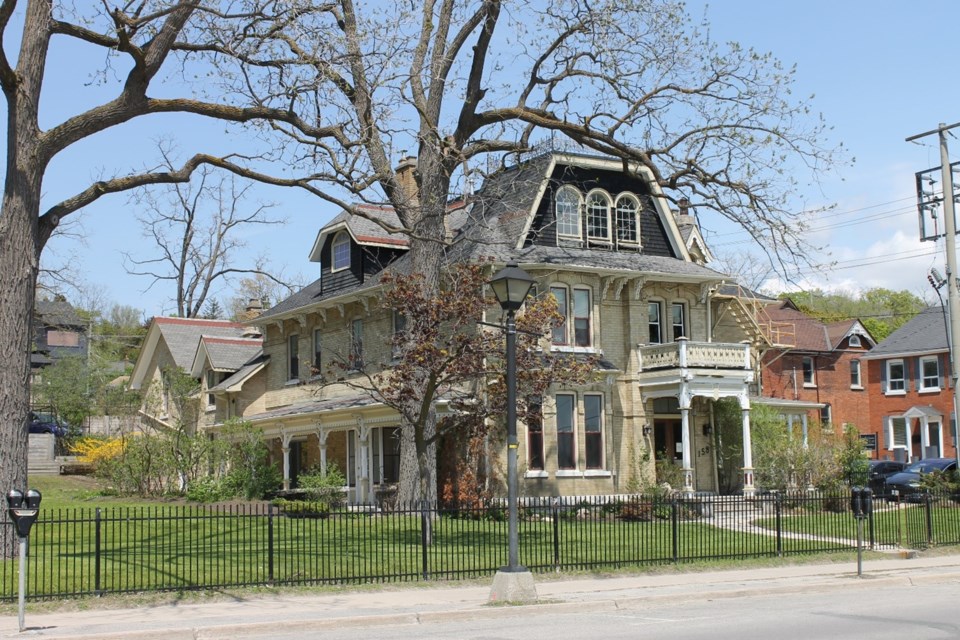The cost of preserving Barrie’s past will get no relief from the city taxman.
A committee motion to have staff develop a heritage homes tax relief program, under the Ontario Heritage Act, was defeated Feb. 7.
“I look at it (heritage) as public benefit, public good, public space,” said Mayor Alex Nuttall. “And this is looking at it as public benefit, public good, but private space. We only have so many dollars in the system, and I think the dollars that we do set aside for heritage should be public space dollars.
“I just don’t feel like it’s a priority against funding for housing for those in the community that don’t have it, and the dollars that we do want to invest in heritage should be invested in public space versus anything else,” he added.
Barrie has 19 designated cultural heritage properties and 46 listed cultural heritage properties.
Coun. Clare Riepma, who sponsored the motion for property tax relief, said he takes a different view than Nuttall.
“Even though the building may be owned privately, it still forms part of the public space, if you’re walking along the street,” the Ward 1 councillor said. “It provides part of the neighbourhood ambience or part of the character of our city.
“We spend very little money on the character of our city and heritage is certainly very much a part of that," Riepma added.
Ontario’s Heritage Act permits the city to create a partial property tax relief program for designated properties. This could encourage the designation of heritage properties and provide some support for the additional costs of preserving heritage buildings.
Preliminary estimates suggest the cost would be $50,000 to $100,000, depending on the rate of tax relief chosen.
Riepma said Ontario’s Heritage Act allows tax relief of between 10 and 40 per cent. Conditions can be attached to it, and receipts for work done can be used as a basis for tax refund, he added.
Many municipalities throughout Ontario, including several local municipalities (Springwater, Innisfil, Collingwood, Penetanguishene and Midland), provide this program, Riepma said.
A city staff review would have permitted the tax relief program’s consideration in the 2025 budget.
But there wasn’t enough support among councillors.
“I cannot justify this,” said Coun. Sergio Morales. “How can I tell a senior who owns a home but is cash poor and can’t afford to do not aesthetic renos, but afford to do functional renos — HVAC, wiring — how can I say to them, we gave a tax break to someone else, but not you?
"I just don’t think this is a good use of public money," he added.
“I think that the optics of this, at this time, is not appropriate,” said Deputy Mayor Robert Thomson. “We’re in a housing crunch for affordability. I can’t see taking big, expensive homes, having tax relief to renovate them at privately owned structures.”
Coun. Craig Nixon noted there is no lineup for this relief.
“I do have a bit of an issue providing tax relief to people who may not be looking for it or haven’t asked for it,” he said.
“I know people that have owned heritage homes, I know they can be expensive, but also too when you buy a heritage home you know what you’re getting into,” said Coun. Gary Harvey.
“Why are we putting this (owning a heritage home) on the pedestal over all of the other good that so many other individuals do in the city?” Nuttall asked.
Riepma said there is another argument for the program.
“Just because people live in a heritage home doesn’t mean they’re rich,” he said. “A heritage home does require more maintenance than a brand-new house. It can be a burden for some people. This (tax relief) program is some recognition of the added expense of owning a heritage home.”
“I was kind of surprised we didn’t have this (program) already,” said Coun. Amy Courser.
Riepma’s motion was defeated in the city’s finance and responsible governance committee. It will not move to the Feb. 28 general committee meeting.
Designated cultural heritage properties are those which have been evaluated for and found to have cultural heritage value or interest, as defined in the regulations to the Ontario Heritage Act. These designated properties are recognized through a municipal bylaw that is passed by city council and registered on title.
Listed cultural heritage properties are those which have potential cultural heritage value or interest, but have yet to be formally evaluated as per the process prescribed in the Ontario Heritage Act. Listed properties are labelled as such, as they are listed in the city’s Municipal Heritage Register, which identifies all municipally recognized cultural heritage resources.



